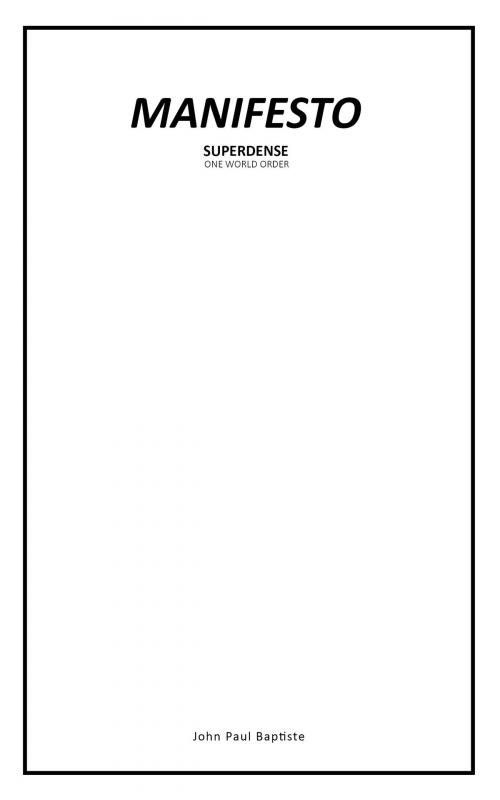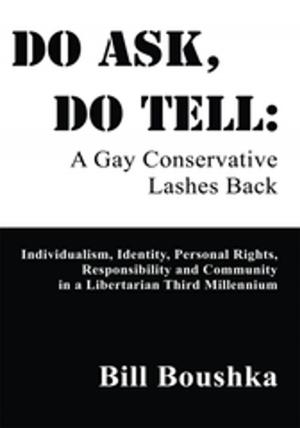Manifesto (One World Order) : Superdense
Nonfiction, Religion & Spirituality, Philosophy, Social & Cultural Studies, Political Science| Author: | Jean Paul Baptiste | ISBN: | 9781370303953 |
| Publisher: | Jean Paul Baptiste | Publication: | April 18, 2017 |
| Imprint: | Smashwords Edition | Language: | English |
| Author: | Jean Paul Baptiste |
| ISBN: | 9781370303953 |
| Publisher: | Jean Paul Baptiste |
| Publication: | April 18, 2017 |
| Imprint: | Smashwords Edition |
| Language: | English |
The book is a socio-economic manifesto from an artist's perspective. It forces the reader to look again at the current models in place while planting the seed for a new paradigm in the public realm.
1. The purpose of this discourse is to make assumptions, provide generalized statements and explanations based on facts, raise awareness and with some imagination provide a thoretical concept for an abstract direction.
2. The manifesto is a selective aggregate of capitalism, socialism and communism. It adheres to utilitarianism while
recognizing the human condition. The requirement of some form of rules and regulations are generally agreed as necessary. However, the term “government” in this manifesto refers to the people and not a disparate entity.
3. The planet is ecologically and environmentally sagging under the weight of the humanity’s footprint. Therefore, a proposal of fundamental adjustments, including the redistribution of the human populous with disregard to the axiological, is necessary for sustainability.
4. There is a substantial economic and literary contrast amongst the people of the world due to the restrictions imposed on the freedom of movement. One of the objectives is to propose an egalitarian alternative to eliminate this disparity.
5. Establishment of interdependence rather than independence albeit retaining individuality.
6. The narrative is not structured to reflect an academic paper. It has no provision or intent to cover technical details and associated complexities. The manifesto is not a practical guide. It is not intended to encompass everything but rather to contribute a generalized ideology.
7. This document is to be perceived in its entirety as some concepts are cross-referenced and are mutually dependent.
The book is a socio-economic manifesto from an artist's perspective. It forces the reader to look again at the current models in place while planting the seed for a new paradigm in the public realm.
1. The purpose of this discourse is to make assumptions, provide generalized statements and explanations based on facts, raise awareness and with some imagination provide a thoretical concept for an abstract direction.
2. The manifesto is a selective aggregate of capitalism, socialism and communism. It adheres to utilitarianism while
recognizing the human condition. The requirement of some form of rules and regulations are generally agreed as necessary. However, the term “government” in this manifesto refers to the people and not a disparate entity.
3. The planet is ecologically and environmentally sagging under the weight of the humanity’s footprint. Therefore, a proposal of fundamental adjustments, including the redistribution of the human populous with disregard to the axiological, is necessary for sustainability.
4. There is a substantial economic and literary contrast amongst the people of the world due to the restrictions imposed on the freedom of movement. One of the objectives is to propose an egalitarian alternative to eliminate this disparity.
5. Establishment of interdependence rather than independence albeit retaining individuality.
6. The narrative is not structured to reflect an academic paper. It has no provision or intent to cover technical details and associated complexities. The manifesto is not a practical guide. It is not intended to encompass everything but rather to contribute a generalized ideology.
7. This document is to be perceived in its entirety as some concepts are cross-referenced and are mutually dependent.















